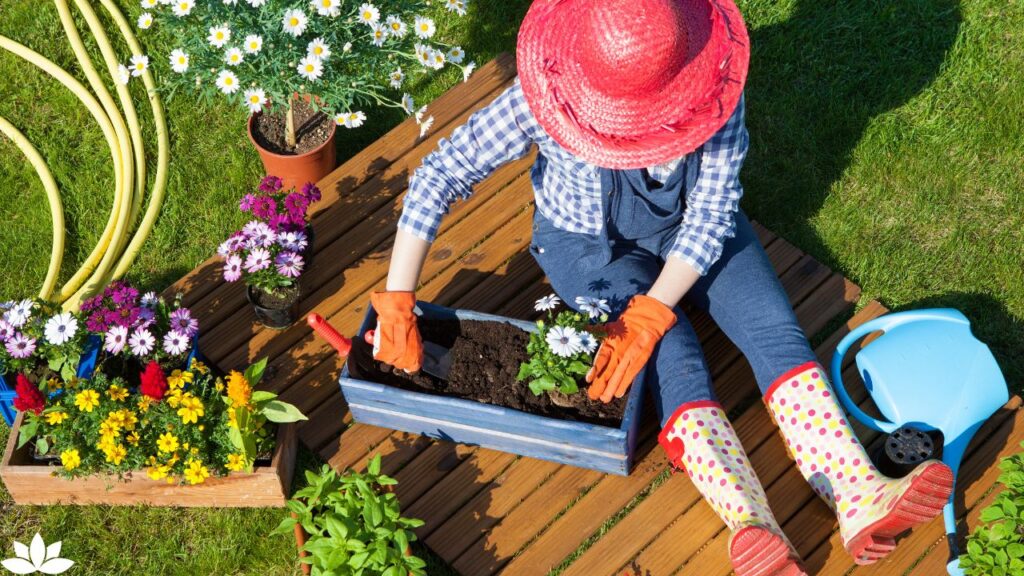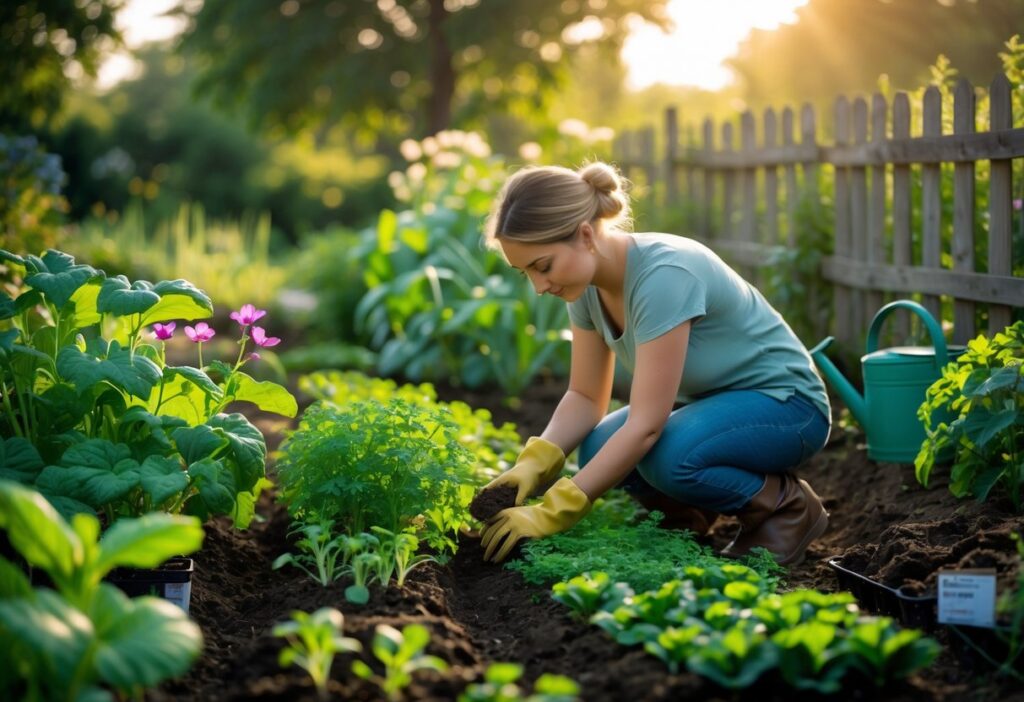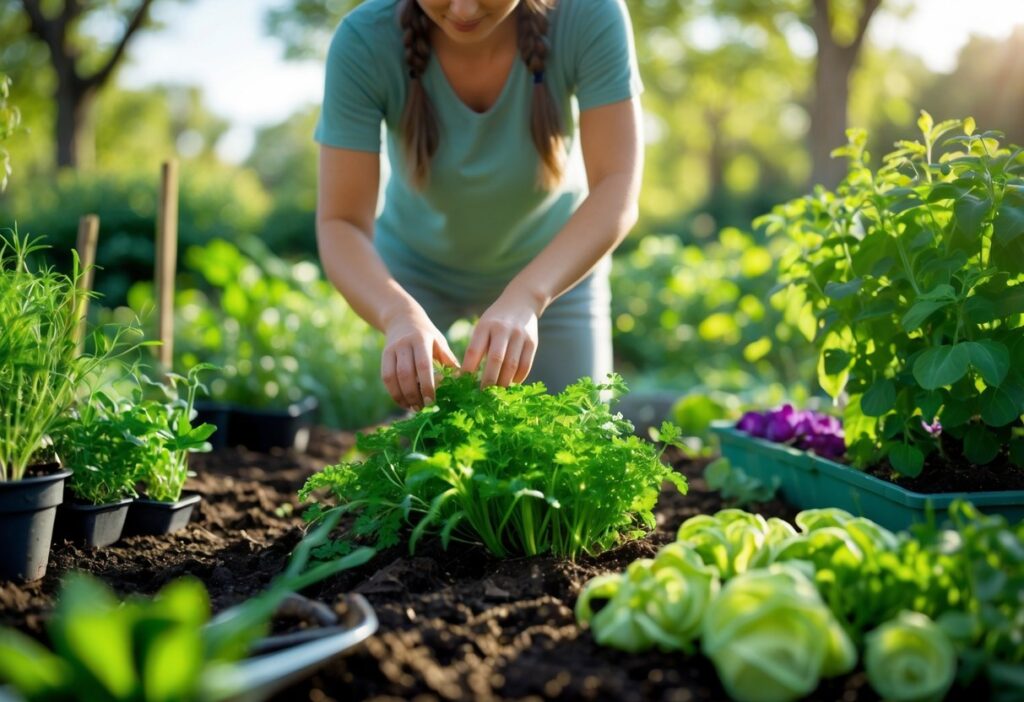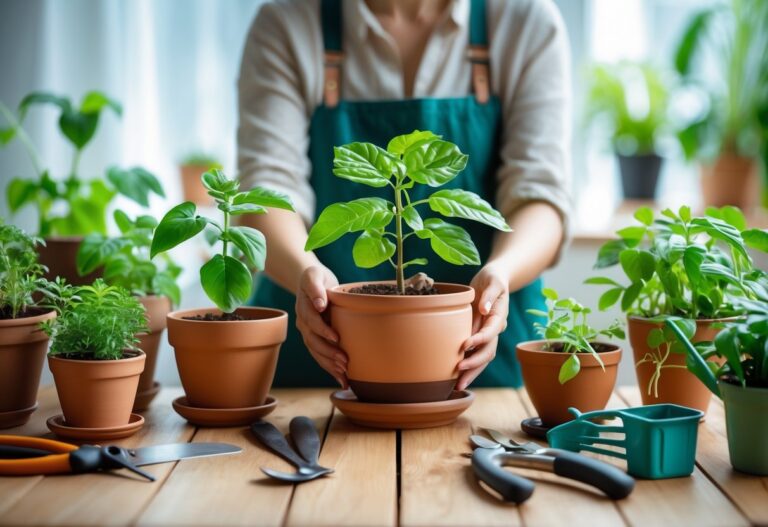Growing your own food connects you straight to nature. It’s honestly a lot more meaningful than just eating what ends up on your plate.
When you plant, nurture, and harvest, you become part of a cycle that’s about more than just nourishment. This hands-on process lets you feel a deeper sense of care, patience, and connection—to the earth and, weirdly, to yourself.

Eating food can get pretty routine. But growing it? That pulls you into a more mindful space, makes you pause and reflect a bit.
You see firsthand the time and effort it takes for food to come alive. That kind of involvement brings you closer to understanding life’s rhythms.
There’s just something about creating and sustaining, not just consuming. You end up with a stronger spiritual bond—one you can actually feel in your bones.
You also gain insight into the natural world and your place in it. Growing food can spark gratitude and a bigger awareness of how your choices ripple out into the environment and your own health.
Honestly, it all makes the experience feel a heck of a lot more sacred than just eating.
The Spiritual Nature of Growing Food Versus Eating It
Growing your own food draws you deeper into the heart of nature. There’s a sense that you’re putting spiritual values into action, and it really does shift your sense of spiritual well-being.
It’s just more meaningful than eating because you’re involved—care, patience, understanding, all of it.
Connection to the Source of Life
When you grow food, you’re right there with the earth, water, and sunlight. It’s a reminder that life depends on cycles you can’t control.
Watching seeds turn into plants gives you a front-row seat to life’s beginnings. It’s oddly humbling.
By working with soil and seeing plants change, you tap into the energy of living things. That experience can raise your spiritual awareness, honestly—there’s nothing quite like it.
Buying food at the store just doesn’t offer that same sense of connection. The process is so distant, you barely think about it.
Embodiment of Spiritual Values in Gardening

Gardening calls for patience and respect for life. You show these values by actually nurturing your plants, not just talking about it.
Through this practice, you end up expressing gratitude for the earth’s gifts. There’s a real humility in facing nature’s unpredictability, too.
Your efforts reflect responsibility and stewardship—big words, but honestly, they matter. You’re learning to live in balance with the natural world.
Eating food alone doesn’t usually push you to live out these beliefs. It’s just not as active or involved.
Transformative Impact on Spiritual Well-Being
Growing food can really strengthen your spiritual well-being. There’s time for quiet reflection and a kind of mindfulness that sneaks up on you.
Caring for plants slows you down. It forces you to focus on the present, which is refreshing in a world that never stops.
The process offers a sense of achievement and connection that goes beyond physical hunger. It’s a joy and purpose you just can’t get from eating alone.
This is why, for a lot of people, growing food feels like a genuinely spiritual practice.
Intention and Mindfulness in Food Practices
Your relationship with food shifts when you bring focus and care into both growing and eating it. Mindfulness and attention to detail just make the whole thing richer.
Presence and Awareness in the Growing Process
When you grow your own food, you’re present for every step. You notice the soil, the water, the sunlight—how they all play a part.
This careful attention helps you develop patience and respect for nature’s cycles. There’s a lot to learn, honestly.
You end up working with the environment, not against it. Responding to weather or pests becomes less of a chore and more of a thoughtful challenge.
That awareness forges a real connection between your effort and what you harvest. It’s not just food anymore—it’s something you helped bring to life.
Through mindful tending, you get a sense of calm and purpose. It’s subtle, but it sticks with you.
Eating With Intention and Its Spiritual Effects

Eating with intention means choosing your food with care and actually paying attention as you eat. Focusing on taste, texture, even smell, slows you down.
This kind of awareness can help digestion and keep stress in check. It also makes you appreciate what you’re eating, turning a meal into something more than just fuel.
Setting an intention—gratitude, healing, whatever you need—links your actions to a bigger purpose. It’s a small thing, but it can change how you feel about eating.
In those moments, eating becomes a connection between body, mind, and soul. It’s honestly worth trying, even if it feels a bit out there at first.
So, is growing food more spiritual than eating it? For a lot of us, yes. There’s something about getting your hands dirty and watching life happen that eating just can’t match. Whether you’re after connection, mindfulness, or just a little peace, gardening seems to offer a path there. Maybe it’s time more of us gave it a shot.
Cultivating Gratitude and Interconnectedness
Gratitude really goes a long way in deepening your spiritual connection to food. When you take a moment to thank the earth, the farmers, and everyone else involved, you start to see the whole web of life that makes your meals possible.
It’s kind of wild how this simple act can expand your sense of being part of a bigger community, rather than just a single consumer. Suddenly, you notice the origins of your food and the care woven into every bite.
Making gratitude a regular habit can honestly boost your appreciation for food as something more than just fuel. It’s like you’re recognizing each meal as sacred energy, not just calories.
This mindset brings you closer to nature, to other people, and maybe even to yourself. Eating becomes a richer, more connected experience—one that feels a bit more meaningful each time.
So, maybe next time you sit down to eat, try pausing for a second. You might be surprised by how much deeper the whole thing feels.



